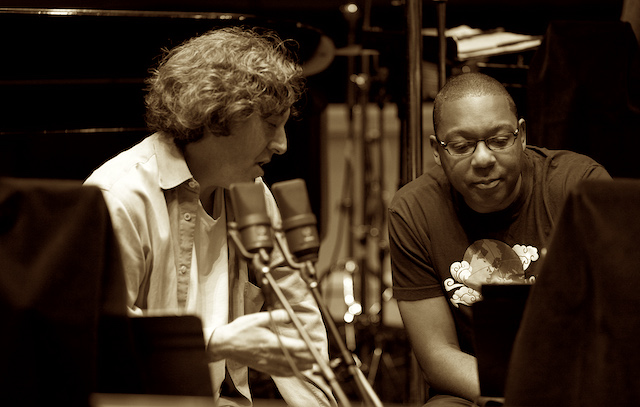Buddy Bolden is arguably the father of modern New Orleans jazz. What little is known about his tumultous life outside his cornet playing, is the subject of Dan Pritzker’s film Bolden. Pritzker spoke with Creative Screenwriting Magazine about the journey to get this story onto the screen.
Bolden “is so special because it resonates as American Mythology because so little is known about Buddy Bolden, and the impact that he had on jazz was so huge. It was an impact that transcended purely music. It created a tempo for twentieth century America. The evolution of jazz changed the way we walked and talked, and particularly the way we view time [in terms of music],” said Pritzker. “Jazz reflected the fast pace of America.” The music and the mythical story of Charles Joseph “Buddy” Bolden attracted Dan to write the screenplay.
The scant details of Bolden’s life posed litle obtacle to Pritzker telling a good story. “I had no interest in telling a story that purely biographical. The interest to me was that there was so little known about him. It allowed me the opportunity to make a story that transcended the man. The story I made is a metaphor for the American soul.” The screenwriter would not entertain the thought of writing a more mainstream biopic of Buddy Boldens’ life, because it would become largely a work of fiction. It could be a love story, or a buddy story of Bolden and his band. “I made the film I intended to make.”
There were some clear documented details of Bolden’s life that served as underpinnings for the film. Key aspects of Bolden’s life coincided with significant times in American history.
“Bolden was born on September 6, 1877. That was the year in which President Rutherford B. Hayes withdrew the troops from the South ending the period of reconstruction after the Civil War. This marked the beginning of the Jim Crow era. This era was marked by segregation, violence and anti-black sentiment.”
“By 1907, when Buddy Bolden was incarcerated in a mental institution, Jim Crow was in full flight. Lynchings were commonplace.”
“Buddy Bolden’s death on November 4, 1931, co-incided with the Great Depression, continued segregation and Jim Crow laws.” This violent time in American history witnessed the emergence of Louis Armstrong, arguably the most well-known jazz musician at the time.
Beyond these facts, some details of the songs that Bolden played, his wife and parents, are publicly known. Pritzker drew upon Donald Marquis’ book In Search Of Buddy Bolden for reference. This was the impetus for the screenwriter to write a story in his signature non-linear style of storytelling. This mentality influences his screenwriting as a whole. “I was certain from the outset it would be a fractured journey. I was more influenced by paintings from the Italian Renaissance rather than cinema. I was living in Italy when I wrote Bolden. I was surrounded by this art which lent itself to the story I wanted to tell as mythology.”
Mythology is a key factor in ancient Greek and Roman art. We asked the screenwriter what the term meant to him. “I think it’s about human beings acting outside of themselves. Their actions transcend their human existence and stand an allegory for humanity, especially with reference to ancient Greek gods. Some were part man and part god.”
Pritzker took some poetic license with the story. He read the Louis Armstrong biography. In June 1931, Armstrong played some jazz gigs at the Suburban Gardens in New Orleans, one of which was broadcast on the radio, five months before Bolden’s death. . This caused a creative spark in the screenwriter. “What if the radio gets turned on in the asylum and Bolden heard Armstrong play a similar style of music?” Buddy awakens when he hears music that is his, but not his.
Pritzker wanted to put the audience in Bolden’s skin. He wanted them to experience Buddy Bolden’s busy mind as he shifted from a catatonic to an awakened state. “I wanted to take people for a ride. The viewer needs to be involved in it and stand in the movie in order to follow it,” adds Pritzker. The screenwriter elaborated on balancing Buddy Bolden’s personal life and his music in terms of the film’s point of view. After careful deliberation, Pritzker decided the point of view was a hybrid of Buddy in the fabric of the time he lived in.
Dan describes the biggest shock he discovered about Bolden’s life is how quickly he descended into madness. “At the turn of the twentieth century, Bolden was a reasonably stable man… maybe a little strange,” said Pritzker. Bolden tested negative for syphilus and gonorrhea, which was routine at the Louisiana State Insane Asylum, where he was incarated. It is believed he suffered from schizophrenia. His mother and his sister would frequently visit Bolden at the time. Eventually, they stopped because he became increasingly violent and did not recognize them.
Buddy Bolden was considered ahead of his time in terms of jazz playing style. “His use of syncopation (landing hard on the fourth beat), flatting the third note of the scale (common in blues music) shows he operated differently than other horn players of the time,” added the screenwriter.
There are currently no known recordings of Buddy Bolden’s music. Rather than perceiving it as a pitfall, Pritzker believes “that it adds to the allure of the legend of Buddy Bolden.“

